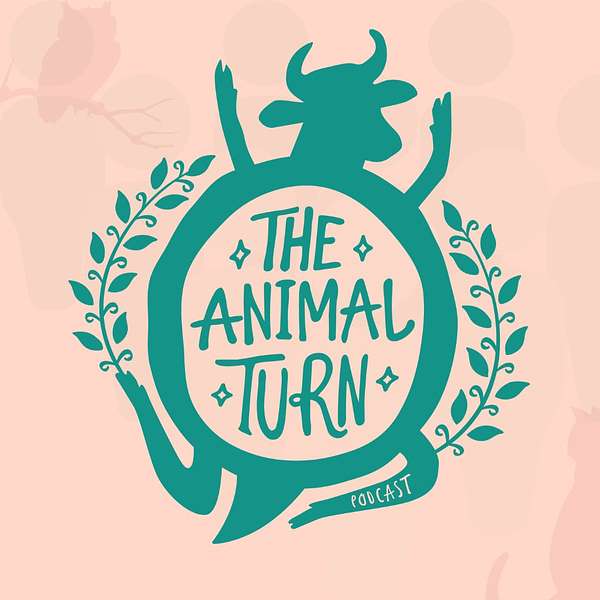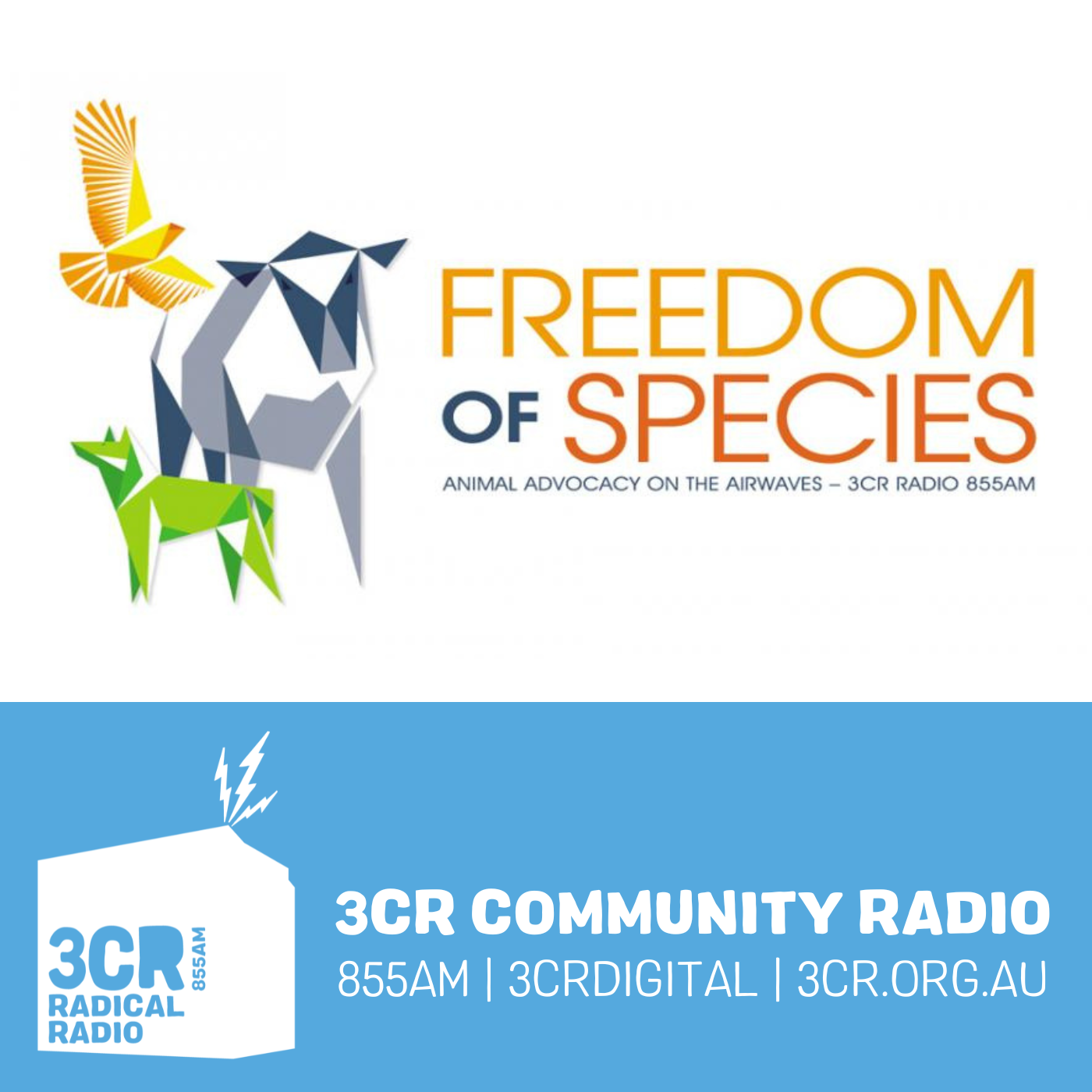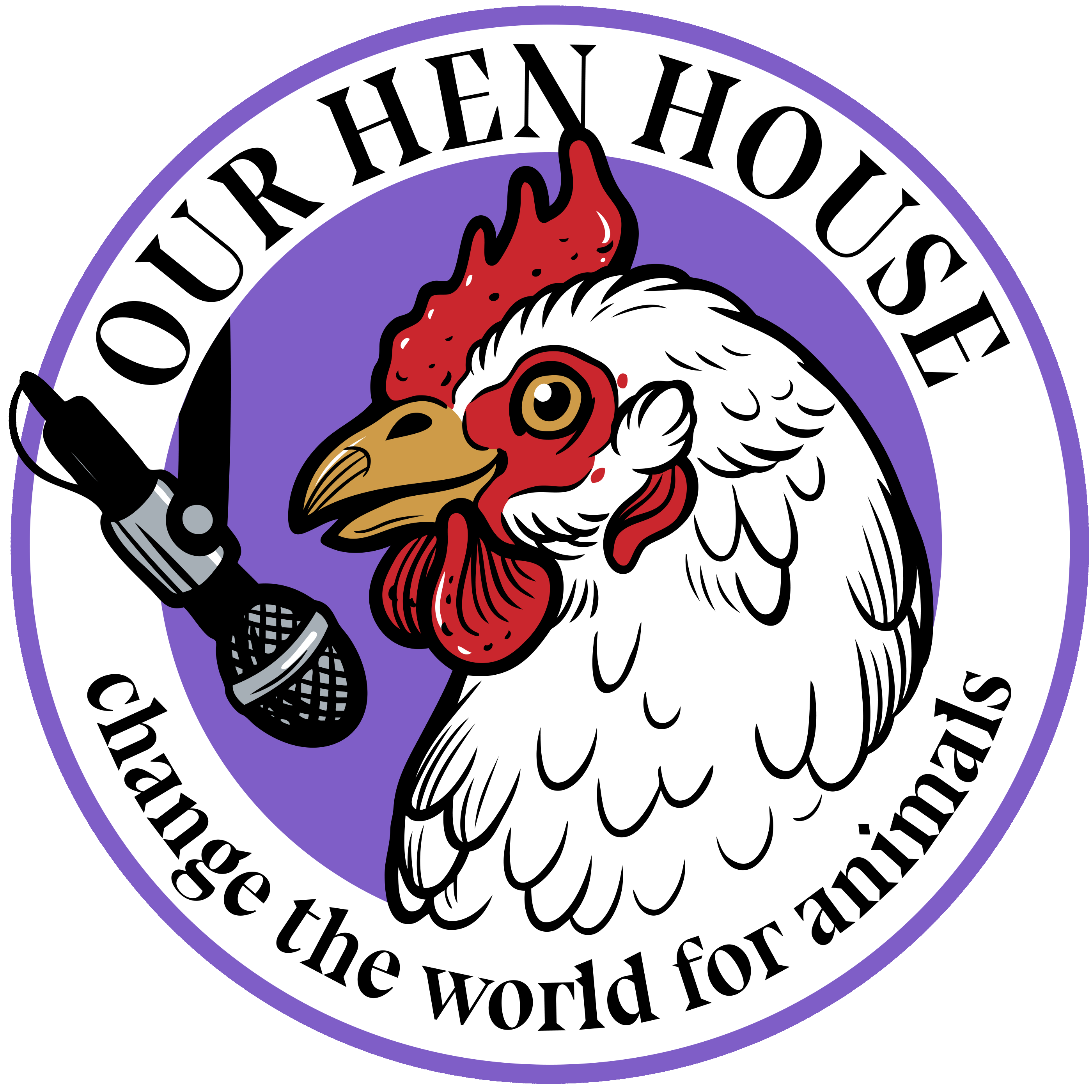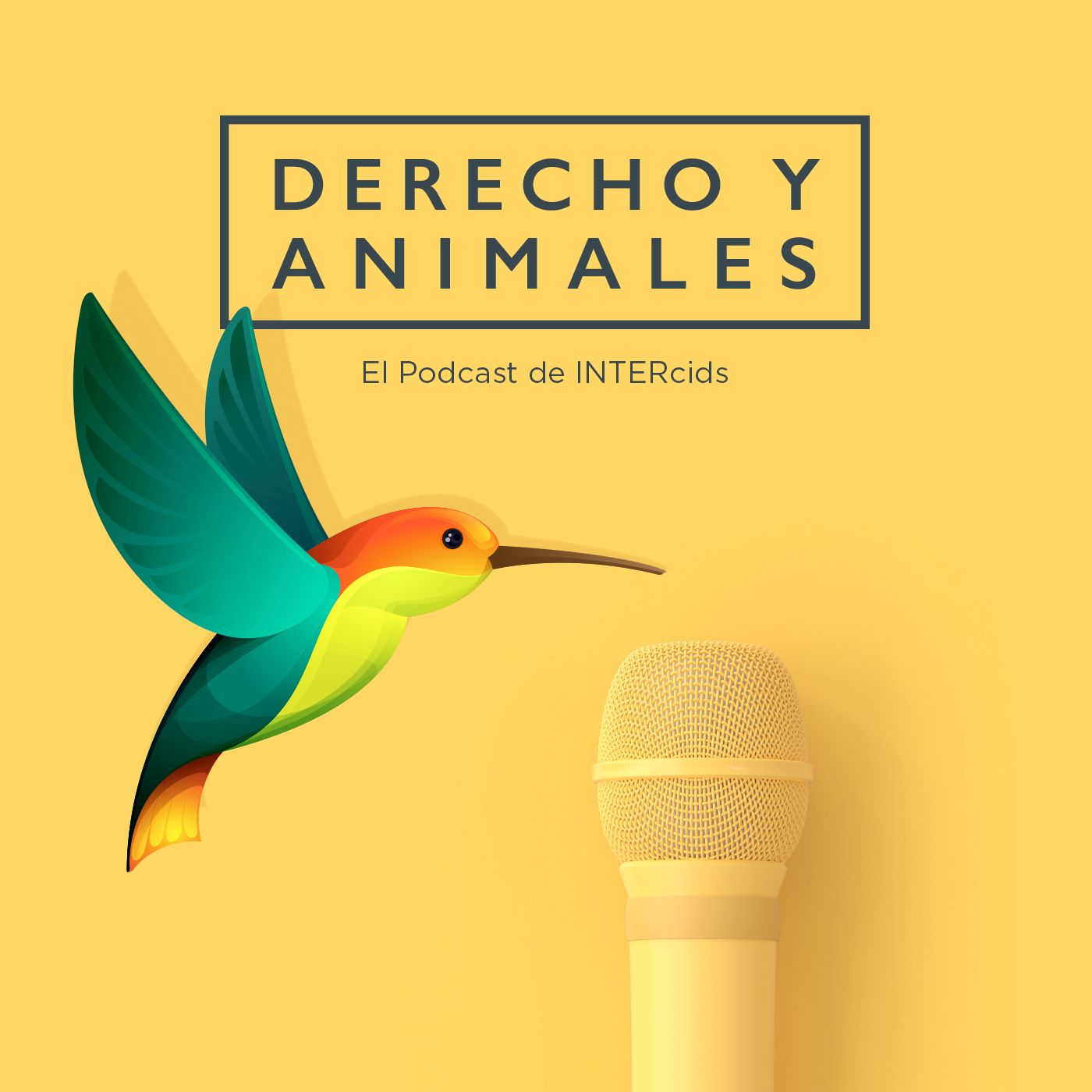
The Animal Turn
Animals are increasingly at the forefront of research questions – Not as shadows to human stories, or as beings we want to understand biologically, or for purely our benefit – but as beings who have histories, stories, and geographies of their own. Each season is set around themes with each episode unpacking a particular animal turn concept and its significance therein. Join Claudia Hirtenfelder as she delves into some of the most important ideas emerging out of this recent turn in scholarship, thinking, and being.
The Animal Turn
S6E6: Social Movement Mobilization and Feminism with Corey Lee Wrenn
In this episode Claudia talks to Corey Lee Wrenn about two concepts that are central to her work in animal studies: social movement mobilization and feminism. They discuss veganism as a social movement as well as some of the ways in which feminism has been sidelined in animal rights’ debates.
Date Recorded: 13 October 2023.
Corey Lee Wrenn is Lecturer of Sociology with the School of Social Policy, Sociology and Social Research (SSPSSR) and Co-Director of the Centre for the Study of Social and Political Movements at the University of Kent. In July 2013, she founded the Vegan Feminist Network, an academic-activist project engaging intersectional social justice praxis. She is the author of A Rational Approach to Animal Rights: Extensions in Abolitionist Theory (Palgrave MacMillan 2016), Piecemeal Protest: Animal Rights in the Age of Nonprofits (University of Michigan Press 2019), Animals in Irish Society (SUNY Press 2021), Vegan Witchcraft: Contemporary Magical Practice and Multispecies Social Change (forthcoming, Routledge) and Vegan Feminism: History, Theory, Activism (forthcoming, Bloomsbury).
Featured:
- A Rational Approach to Animal Rights: Extensions in Abolitionist Theory by Corey Lee Wrenn.
- Piecemeal Protest: Animal Rights in the Age of Nonprofits by Corey Lee Wrenn.
- “Orphans of the left”? by Will Kymlicka.
- Racism as Zoological Witchcraft by Aph Ko.
- Are Women Human? by Catharine MacKinnon.
- Ecofeminism, Second Edition by Carol Adams and Lori Gruen.
- The Revolution will not be funded by Incite.
- International Association of Vegan Sociologists.
- Vegan Feminist Network.
- Plant Based University Campaign.
The Animal Turn is part of the iROAR, a
A.P.P.L.EAnimals in Politics, Law, and Ethics researches how we live in interspecies societies and polities.
iROAR Network
iROAR brings together podcasts that aim is to make the world a better place for animals.
Disclaimer: This post contains affiliate links. If you make a purchase, I may receive a commission at no extra cost to you.
The Animal Turn is hosted and produced by Claudia Hirtenfelder and is part of the iROAR Network. Learn more on our website.
- Leave a Review on Podchaser
- Check out The Animal Turn Merch.
- Support us on Patreon, Buy Me a Coffee, and Buzzsprout.
00:00 - Introduction
- Talking about two concepts “social movement mobilization” and “feminism”
- Cory Lee Wrenn is Lecturer of Sociology with the School of Social Policy, Sociology and Social Research (SSPSSR) and Co-Director of the Centre for the Study of Social and Political Movements at the University of Kent. She received her Ph.D. in Sociology with Colorado State University in 2016. She was awarded Exemplary Diversity Scholar, 2016 by the University of Michigan’s National Center for Institutional Diversity. She served as council member with the American Sociological Association’s Animals & Society section (2013-2016), was elected Chair in 2018, and co-founded the International Association of Vegan Sociologists in 2020. She serves as Book Review Editor for Society & Animals, Consulting Editor for Psychology of Human-Animal Intergroup Relations, and Editor for The Sociological Quarterly, is a member of The Vegan Society’s Research Advisory Committee, and hosts Sociology & Animals Podcast. Cory has been published in several peer-reviewed academic journals including the Journal of Gender Studies, Environmental Values, Feminist Media Studies, Disability & Society, Food, Culture & Society, and Society & Animals. In July 2013, she founded the Vegan Feminist Network, an academic-activist project engaging intersectional social justice praxis. She is the author of A Rational Approach to Animal Rights: Extensions in Abolitionist Theory (Palgrave MacMillan 2016), Piecemeal Protest: Animal Rights in the Age of Nonprofits (University of Michigan Press 2019), Animals in Irish Society (SUNY Press 2021), Vegan Witchcraft: Contemporary Magical Practice and Multispecies Social Change (forthcoming, Routledge) and Vegan Feminism: History, Theory, Activism (forthcoming, Bloomsbury). Find out more about Cory on her website or connect with her on Twitter (@DrCoreyLeeWrenn).
04:50 – A bit about Cory
- Many projects on the go at the moment
- Trained as a social movement scholar and only became more informed about feminism as a PhD student.
- Vegan feminist scholars hadn’t moved into the digital wave of feminist animal rights activism, started Vegan Feminist Network to show what was happening on the margins.
- Been a vegan and an animal rights activist most of her life.
- Grew up with many pets and animals around. When she was 13 she watched a TV show that had pigs’ heads and she went vegetarian.
- Knew that veganism was the way to go so Cory wrote to PETA who then sent back some magazines and literature. Went vegan went she went to university in 2001.
- Was interested in how she could make the vegan movement more effective and that is how she became a social movement scholar.
- Focused on animals as a PhD student but got a lot of resistance from the faculty, no one was studying animal issues.
11:50 – The Success of Veganism as a Social Movement
- “The magnitude of suffering is so extreme” – Cory
- On the other hand, there have been significant gains in the animal rights movement. A recent example is the Plant Based University Campaign.
- Veganism is more normalized in different parts of the world.
- Animal Rising asks students to make use of student democratic channels to create more equitable university policies.
- This was launched at the University of Kent, Cory was skeptical that it would work but it did and they are now transitioning to plant based. The idea is that universities will become cultural leaders.
- A lot of welfare laws just increase animal oppression.
- Disheartening how few people working with climate change are making the connection to animal agriculture.
17:50 – Sidelining Animals in Social Movements
- Human supremacism: why are animal rights activists still the “orphans of the left”? by Will Kymlicka
- Animal rights and veganism is increasingly recognised by other climate movements but veganism is still considered quite radical.
- Ecofeminist folks in the 70s were not explicit about veganism either.
- Racism as Zoological Witchcraft by Aph Ko – Animality and Identity Politics. Historically many people have been understood as and legally treated as animals. For a lot of movements they are trying to prove their humanity and claim their rights.
- Are Women Human? by Catharine MacKinnon. We need to fight for human rights. Humanity is equated with equality and protection.
- But when we take away animality as a comparison point we challenge that oppressive logic, “speciesism, I would argue, being at the very root of all oppressions” – Cory
- Intersectionality is often thought about superficially and there are concerns that adding species might lead to a dilution of the gains made
22:30 – Intersectionality, Feminism, and the Animal Rights Movement
- Carol Adams and Lori Gruen’s Ecofeminism, Second Edition, in the first chapter they delve into the history of how feminism got sidelined in the animal rights movement.
- The Oxford Club tried to make animal rights a rational agenda but it had “a chilling effect” on people who are active in the animal rights movement in the 21st century.
- Feminism encompasses more than women’s issues.
- Aph Ko wrote a blog called “black vegans are cool” received angry, shocking comments.
- The fact that people get so angry means we need to pay more attention to what is going on.
- It is about disrupting hierarchies of power.
- “If we have a movement that’s not actually enacting the type of world we want to live in, how effective is it going to be?” – Cory
- Carol Adams has done so much work on vegetarian politics and the correlation between what happens to animals bodies and women’s bodies.
- The next frontier, however, is to focus on how these gender politics transpire in the animal rights movement. “It is highly contentious” – Cory
- Carol Adam’s work has become so seminal that people think it captures all of the vegan feminist movement.
- Vegan Campout is the biggest vegan gathering in the whole of Britain but every year the line-up always consists of men. Cory made a comment about this on Vegan Feminist Network and received backlash from the Vegan Campout.
- A highly feminised movement but men experience faster rise as male celebrities in the animal rights movement.
- Animal bodies are gendered bodies and gender relations have been so central to the history of the vegan movement.
31:09 – Undermining and Infighting in Social Movements
- Ecofeminism was often viewed as an outlier to mainstream feminist movements.
- There is a myth in the animal rights movement of the pure vegan.
- Major animal welfare strategies create a straw person argument by crafting the idea of the pure vegan.
- “When we are speaking truth to power, power pushes back” – Cory
- Infighting is normal in social movements, hegemonic actors are the ones that push for supposedly radical actors to change.
- Infighting has led to some of the most important changes in the animal rights movement.
- “If we didn’t have infighting, we would not be vegan. If we didn’t have infighting, we would still have the RSPCA promoting hunting. If we didn’t have infighting, we would still have major organizations ‘euthanizing’ healthy dogs and cats, which some organizations still do but they’re outed now and it’s not okay to do it anymore. We challenge it quite a bit. It is actually infighting that has challenged all of those, actually deeply speciesist practices of the animal rights movement made room for” – Cory.
- It is not necessarily fracturing but it might also be a sign of a social movement maturing.
37:21 – Flexitarianism and Incremental Change
- Radical versus conservative politics
- The idea of incremental change is not really helping the political movement of achieving rights for animals.
- Noone in the animal rights movement said the world will go vegan overnight, there was always an assumption that change will be slow.
- Animal charities that are not interested in animal liberation are only really making the world nicer for consumers.
- When people write about flexitarianism they write about it as though it is an end in and of itself. Organizations are using it as a stop gap and intentionally watering down their approach because they know if they advocate for veganism that that will challenge a lot of industries that fund these organizations.
- There is limited science to prove that flexitarianism will work in achieving animal rights, it is contentious. But these organizations know that compromise will guarantee funds and big grants because “they will not alienate conservative donors who have ties to speciesist industries” – Cory.
- In the previous episode, Gary mentioned how individuals often talk about abolition, but organizations don’t.
- The vegan label is a political label, and one needs to ask for who benefits from watering it down.
42:15 – Capitalist Systems and Alienation
- The idea that the bigger we get the more successful we will be. But working within the capitalist system has no hope of challenging that system.
- The Revolution will not be funded – Book.
- People think capitalism will get them out of the problems that it has created but capitalism is smart and has a way of absorbing their enemies.
- There is a social effect that happens when you enter these organizations, there is a bureaucratization that happens with the work and your psyche.
- Big welfare organization rhetoric that the world will not go vegan overnight is repeatedly use to alienate the ideas of animal rights.
- So many organizations started out as student organizations including PETA and Compassion Over Killing
- When these radical groups go professional they change their messaging.
- There is a hegemonic block in the animal rights movement of all these major organizations that are isomorphic and pretty much look the same. They make it very difficult for anything radical to squeeze its way through.
- The Farm Animal Rights Movement actively block radical speakers and groups from participating. There hall of fame doesn’t include many women or radicals.
49:16 – Quote
- “Nothing Personal: Sociology advances the radical idea that much of what individuals take to be “real” or “common sense” is actually socially constructed. That is, reality is real only in the collective imagination, and imaginations can be manipulated. This is a radical idea that is already well accepted by many social movement activists who are keenly aware that reality can be manufactured, and they have a vested interest in contributing to that manufacture. Indeed, social movements hold great relevance to the social construction of reality given their focus on meaning-making in the public sphere. Activists, however, may find themselves distracted by this potential for agency, focusing on their individual experience of social movement mobilization to the exclusion of the wider environment that constrains it. It is certainly the powerful cultural ideology of individualism that encourages the misattribution of social or systemic processes to individual behaviors (or bad luck), but sociology’s structural focus lends to a depersonalization of politics. For activists embroiled in the distressing emotional labor of movement building and the inevitable disagreement that comes with group-level cooperation, [...] sociological analysis [...] should provide a critical understanding that relieves frustration and empowers. Infighting and boundary-making are typical characteristics observed of collective behaviors across most, if not all sectors. It is nothing personal; it is a predictable consequence of people coming together to do the messy business of constructing the social world.” - Piecemeal Protest: Animal Rights in the Age of Nonprofits, page 1
- Factionalism is an everyday part of animal rights and of social movement mobilization
- Social movement research can tell us how to do our activism more effectively but the animal rights movement has leaned towards philosophy and masculinized psychology.
- Sociology in animal rights spaces is traditionally informed by feminism. Need to move beyond the individual focus. Need to questions the institutions and structures that shape what options are available to us.
- Launched Vegan Sociologists with Zoe Sutton.
54:39 – What are you working on now?
- Check out International Association of Vegan Sociologists and have a look at their annual conference which often includes feminist angles.
- Vegan Feminist Network
- Looking at veganism and witchcraft, pulling on ecofeminism. Where do non-human animals fit into that story? World Vegan Day is the day after Halloween. Book will be published soon.
- Going to be writing a book on vegan feminist thought.
- Cory Lee Wrenn website
58:26 – Animal Highlight (Brown Dog)
- Noone is sure of this dog’s name, but he is commonly called ‘Brown Dog.’
- Small brown, stray terrier who was used at the medical school at the University of College London in 1903 where he was used for vivisection.
- His story was brought to the attention of the International Antivivisection Society.
- Antivivisection activists enrolled in the university to record what was happening. They presented their results at the International Antivivisection Society who noticed the use of Brown Dog was illegal based on the Cruelty to Animal Act.
- Vivisection was legal but it was controlled.
- It was a complicated case and too much time had gone by to apply a legal case but Coleridge made a public accusation. He was then sued for defamation. This case attracts a huge amount of public attention and Coleridge wasn’t able to prove his accusations. By this time public opinion was with the International Antivivisection Society.
- A statue was put up to remember Brown Dog and galvanized an antivivisection movement.
- The statue was vandalized and then the debate formed along class and gender lines. It was removed in 1910. Today there is a memorial to the first statue. The memorial presents the dog in a responsive way whereas the original dog in the original statue was displayed defiantly.
- In 2021 there were 50,000 dogs in labs in the United States.
- In 2020 there were 4340 experiments conducted on dogs in the UK.
- Historically stray dogs were picked up in shelters and then given to university.
- Thomas Harting episode.
Credits
- Thank you to Animals in Philosophy, Politics, Law and Ethics (A.P.P.L.E) for sponsoring this podcast; Gordon Clarke (Instagram: @_con_sol_) for the bed music, Jeremy John for the logo, Virginia Thomas for the Animal Highlight, and Rebecca Shen for her design and social media work. This episode was edited by Christiaan Mentz and produced by the host Claudia Towne Hirtenfelder.
Show notes compiled by Claudia Hirtenfelder
Podcasts we love
Check out these other fine podcasts recommended by us, not an algorithm.

The Animal Highlight
Claudia Hirtenfelder
Knowing Animals
Josh Milburn
Species Unite
Species Unite
The Deal With Animals with Marika S. Bell
Marika S. Bell
The Other Animals
Laurent Levy
Beyond Species
Beyond Species
The Anthrozoology Podcast
Anthrozoology Podcast
Freedom of Species
The Freedom of Species Team
Our Hen House: Vegan & Animal Rights Movement | Stories from the Frontlines of Animal Liberation
Jasmin Singer and Mariann Sullivan
Derecho y Animales
Derecho y Animales
Storytelling Animals
Dayton Martindale
Species
mackenmurphy.org
Animal Law Matters
K & R Animal Law
The Humanimal Connection
Humanimal Trust
The Animal That Changed You
Katya Lidsky
Think Like a Vegan
Emilia Leese
The Shifting Lens: Viewing the Animal Experience
Tiamat Warda Rebecca Madrid
The Salmon People
Canada's National Observer
Comme un poisson dans l'eau
Victor Duran-Le Peuch


